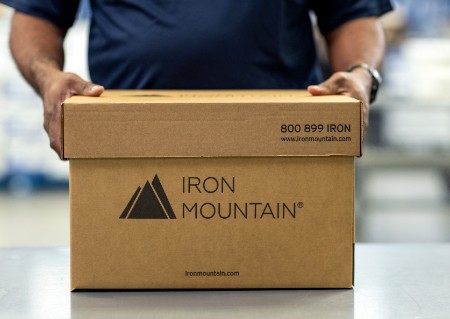Gain peace of mind with scalable, defensible legacy records cleanup
With more organisations transitioning to digital platforms and formats, the need to clean up legacy paper records has become a strategic priority.

If your organisation is looking to tackle vast volumes of physical records that have accumulated over time, you're not alone. According to an Economist Impact study sponsored by Iron Mountain, 93% of global executives plan to or have already begun a legacy records cleanup initiative.
I understand that cleaning up these records can be challenging, especially if you don't believe you have all the information required to make defensible decisions about what to keep, destroy, or digitise. But ignoring the challenge can lead to inefficiencies, increased costs, non-compliance, and heightened risks.
By gaining an understanding of what records you possess, organising files, and assigning retention rules at the box and file levels, you can make confident, defensible decisions about your records inventory. As a result, you'll meet business objectives, reduce costs, and mitigate risks-all while transforming to a more efficient, more digital way of working.
Establishing a smart, defensible process
When it comes to an organisation's records inventory, a single solution can't clean up an inventory that may have inadequate descriptive information or contain boxes of commingled files that extend across multiple lines of business, geographies, and even various vendors.
However, by implementing a smart, multipronged approach, you'll take the guesswork out of legacy records cleanup and achieve the benefits and peace of mind of a well-structured program:
1) Defensible decision-making today and for the future
You've most likely had a legacy records cleanup initiative on your list of priorities for a while. The relief from finally getting it done will have a ripple effect for years to come. Once you establish a robust and defensible process for managing legacy records, you'll not only tackle records that have met compliance requirements today but also have a system in place to maintain compliance over time.
With a defensible process in place, you can confidently make the right decisions about what records to retain, destroy, or digitise based on legal and regulatory requirements as well as your unique business objectives.
2) Cost optimisation
Storage can become costly over time, especially if you are paying to store boxes of physical records you're no longer required to retain. For organisations that still have large inventories of paper records, cleaning up these inventories has become a priority. In a recent legacy records cleanup survey sponsored by Iron Mountain, we found that cutting costs related to maintaining paper records was the top priority for 79% of respondents.
Establishing a defensible process to help identify which records must be kept and which ones can be defensibly destroyed will not only reduce costs but also reduce the risks of non-compliance and associated fines.
3) Improved productivity
By culling your inventory, organising files, and updating metadata at the box and file levels, you can more easily locate and retrieve records, reducing time spent searching for information. Additionally, by digitising business-critical records, you'll make it even easier to find what you need and disseminate information to the employees who need it.
For physical records, it's essential to ensure that boxes and files have listed metadata to ensure records can be easily located and accessed.
4) Accelerated digital transformation
Addressing legacy physical records can accelerate your organisation's digital transformation. The cleanup process will help you identify records that have met retention requirements and can be defensibly destroyed. The process will also help you identify those critical records that you need to access regularly and should be digitised.
By tackling your paper records inventories, you can eliminate manual processes and move to a more digital way of working. This saves time and reduces costs while enabling employees to work more efficiently and effectively in a digital environment.
Navigating your legacy records cleanup initiative
As we mentioned in a previous post, a DIY (do it yourself) approach to cleaning up records inventories has its challenges. It's overwhelming. It's resource-intensive. And it distracts employees from their core work. The good news is you don't have to undertake the process alone.
No matter the scale or complexity of your records cleanup initiative, we can help eliminate much of the guesswork and automate decision-making. The more objectivity that is built into the process, the more consistent it will be. The ultimate goal is to remove the subjective human element through the use of technology-enabled solutions such as Iron Mountain Smart Sort.
The result is exactly what you need: a records inventory that is sorted, well-organised, and discoverable when required. You'll have peace of mind knowing that you can easily and confidently take defensible action on your records throughout the cleanup process and beyond.
Learn more about our legacy records cleanup solutions.
Related resources
View More Resources

